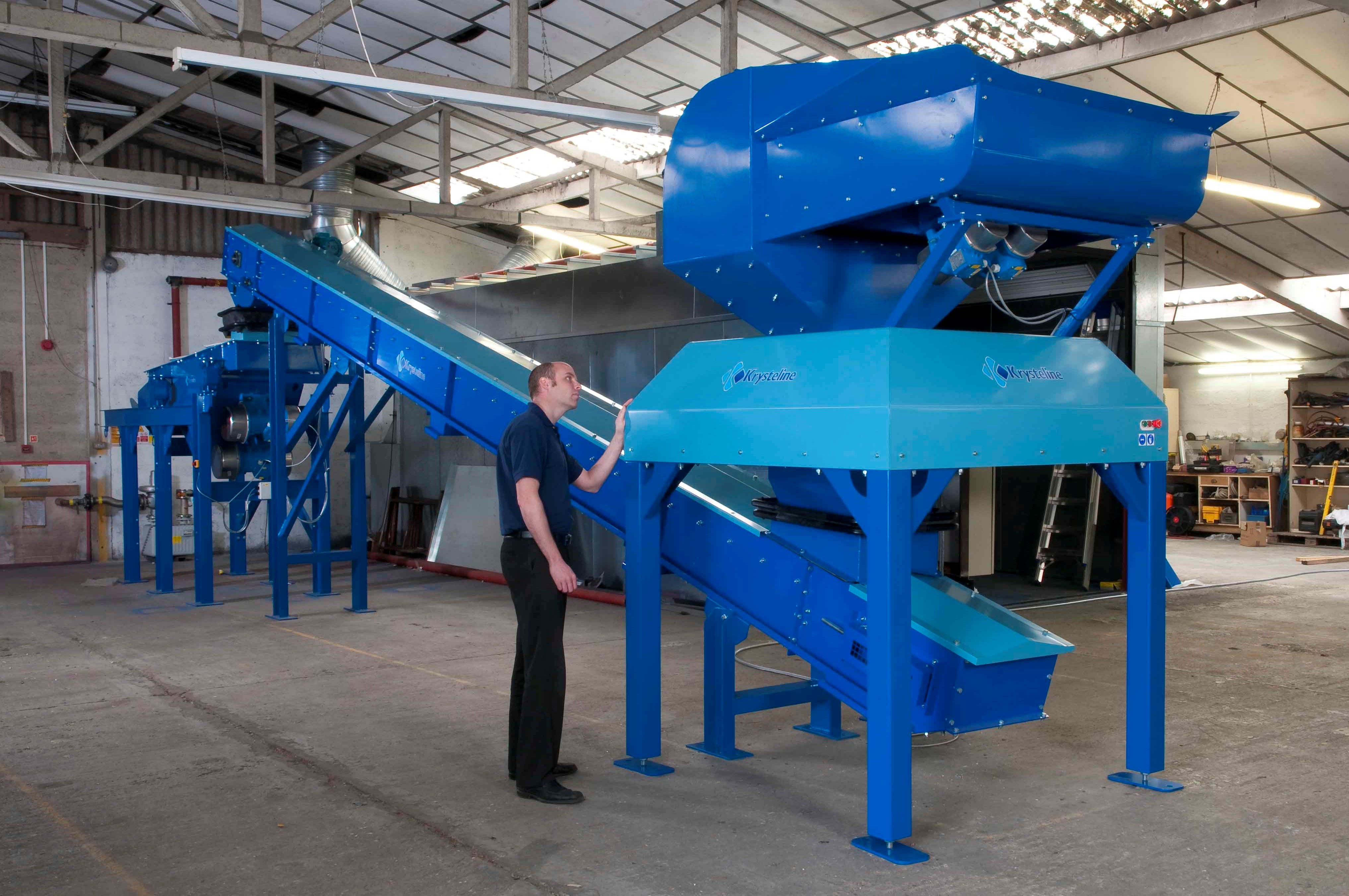For the past 2 years the Gaspésie Intermunicipal Waste Treatment Board have successfully managed to locally recycle 100% of the waste glass sent to their plant
Being the principle technology provider for the glass crushing and recycling system at Gaspésie, we at Krysteline Technologies are delighted to be part of the success being experienced by, Executive Director of Gaspésie Intermunicipal Waste Treatment Board, Nathalie Drapeau and her team.
The plant at Gaspésie was designed to meet the requirement of local markets rather than a centralized policy. As with any efficient glass recycling plant there is a requirement to match the process to the most cost effective market which has the smallest Carbon footprint.
"For two years, the glass is 100% processed and reused here. It's easy enough to get there." - Nathalie Drapeau
Often the perception of closed loop recycling through the production of new bottles using cullet is uneconomic. The carbon saving of using cullet in bottle production is only calculated on the carbon saved from cullet delivered to the gate of the remelt site and not the whole carbon cost. By whole we mean the collection, processing and transport cost per tonne of all tonnes and not just the colour or size sought by the remelt plant. Additionally a remelt plant will produce bottles to meet the demands of the domestic market, generally it will not have adequate capacity for glass arising from imports. With importation of packaged food and liquids rising the challenge is how to balance the ideology of closed loop bottle to bottle production with the reality faced by glass recyclers on the domestic and international stage.
Glass cullet has a relatively low value in the recycling commodities market compared to other products such as paper, plastic and cardboard. This low value has and will always be the challenge for recyclers. There makes little sense in hauling and processing glass for it to be disposed of in landfill, nor does it make sense to invest heavily in technology for the production of cullet when the market demand does not match arisings.
Technology is key to resolving the disparity between arisings and usage, we at Krysteline have cooperated on the development of higher value uses for glass such as water filtration, expendable abrasives, fillers and more recently foam glass for construction and hydroponics.
 GPK200-C-SC - Eco Enterprises Quebec
GPK200-C-SC - Eco Enterprises Quebec
Capital costs are always the challenge, many markets are perceived as new or underdeveloped by traditional investors but the reality cannot be further from the truth. Pent up demand for quality environmentally based products continues to grow but still investors are often shy. The hotly debated issue of the most cost effective or efficient method for collecting, recovering and re-using glass would appear to be a major investment challenge. We all accept that deposit has its place in certain situations, but definitely not all. As the value of processed glass is relatively low and processing costs relatively high, a system where the recycler is paid a fee when the glass has been truly recycled seems to make sense. This encourages investment in equipment at the MRF or Recycling centre and continues to stimulate investment as markets evolve.
As Nathalie Drapeau, Executive Director of the Gaspésie Intermunicipal Waste Treatment Board says “for two years, the glass is 100% processed and reused here. It's easy enough to get there”. According to Nathalie Drapeau, the Régie now receives calls from other municipalities interested in the process.
Krysteline offers technology from simple glass crushing through to MRF glass cleanup and full refinement, please feel free to contact us with any glass processing requirement you may have, we will surely have the right solution for you.